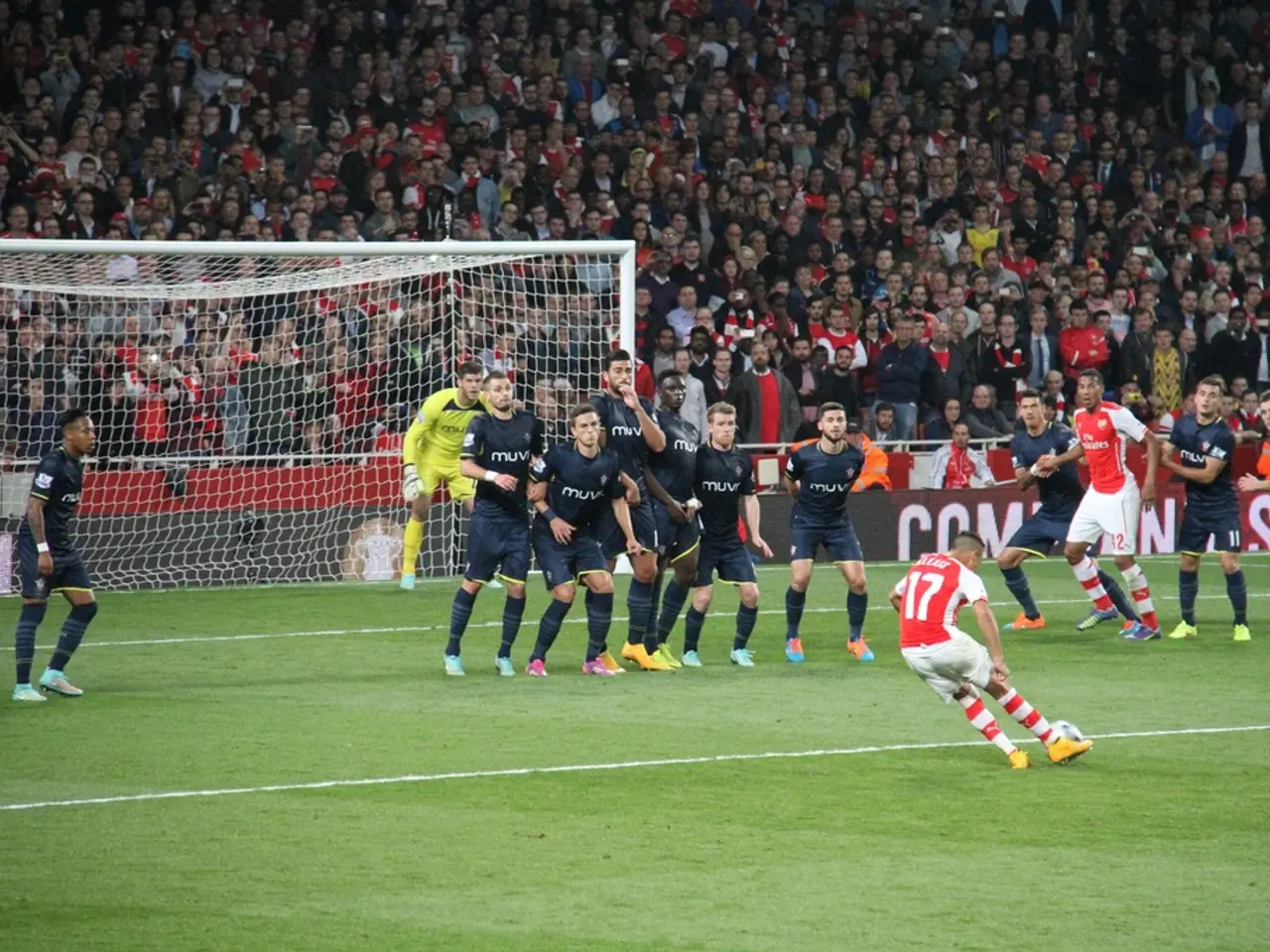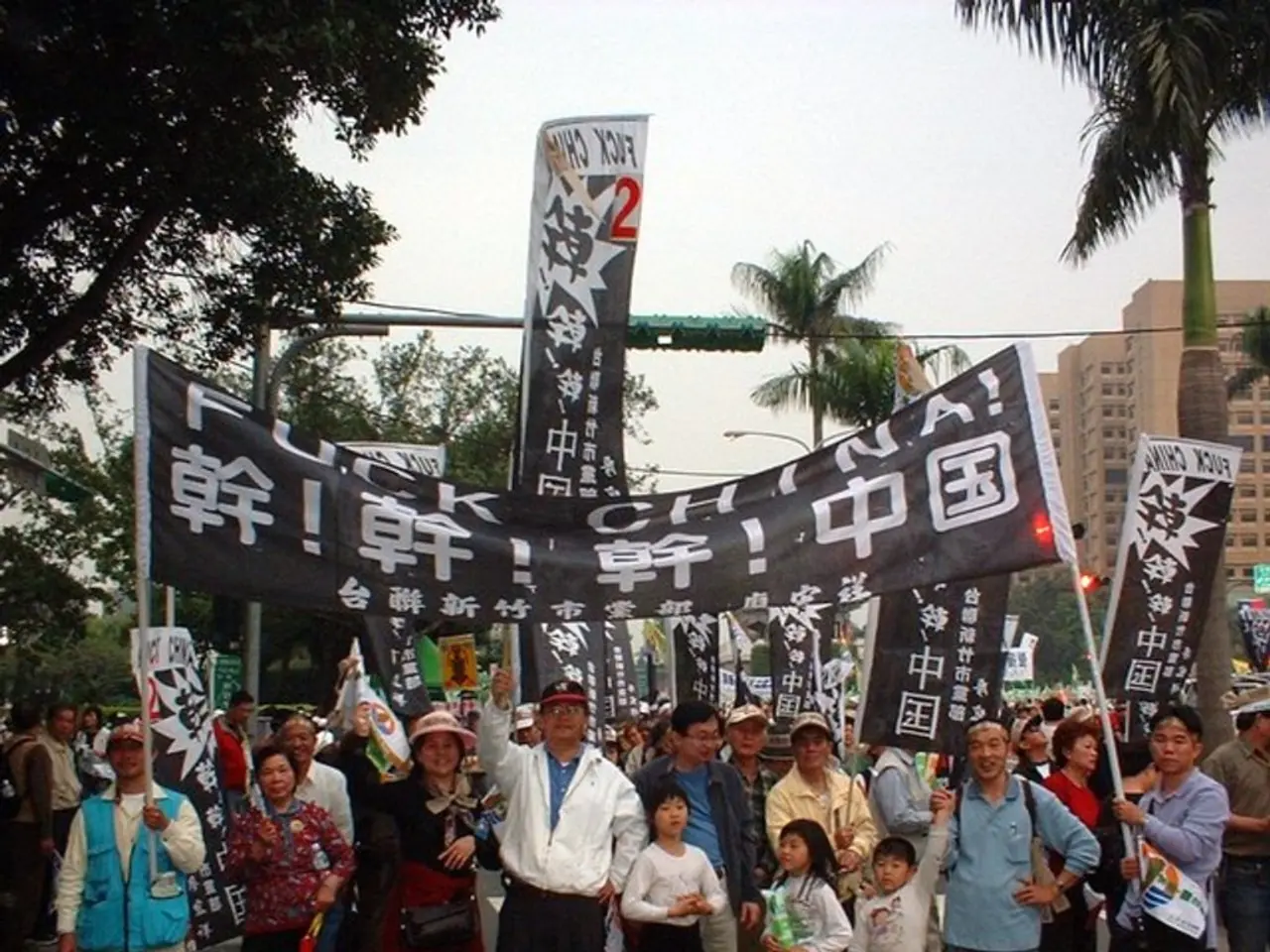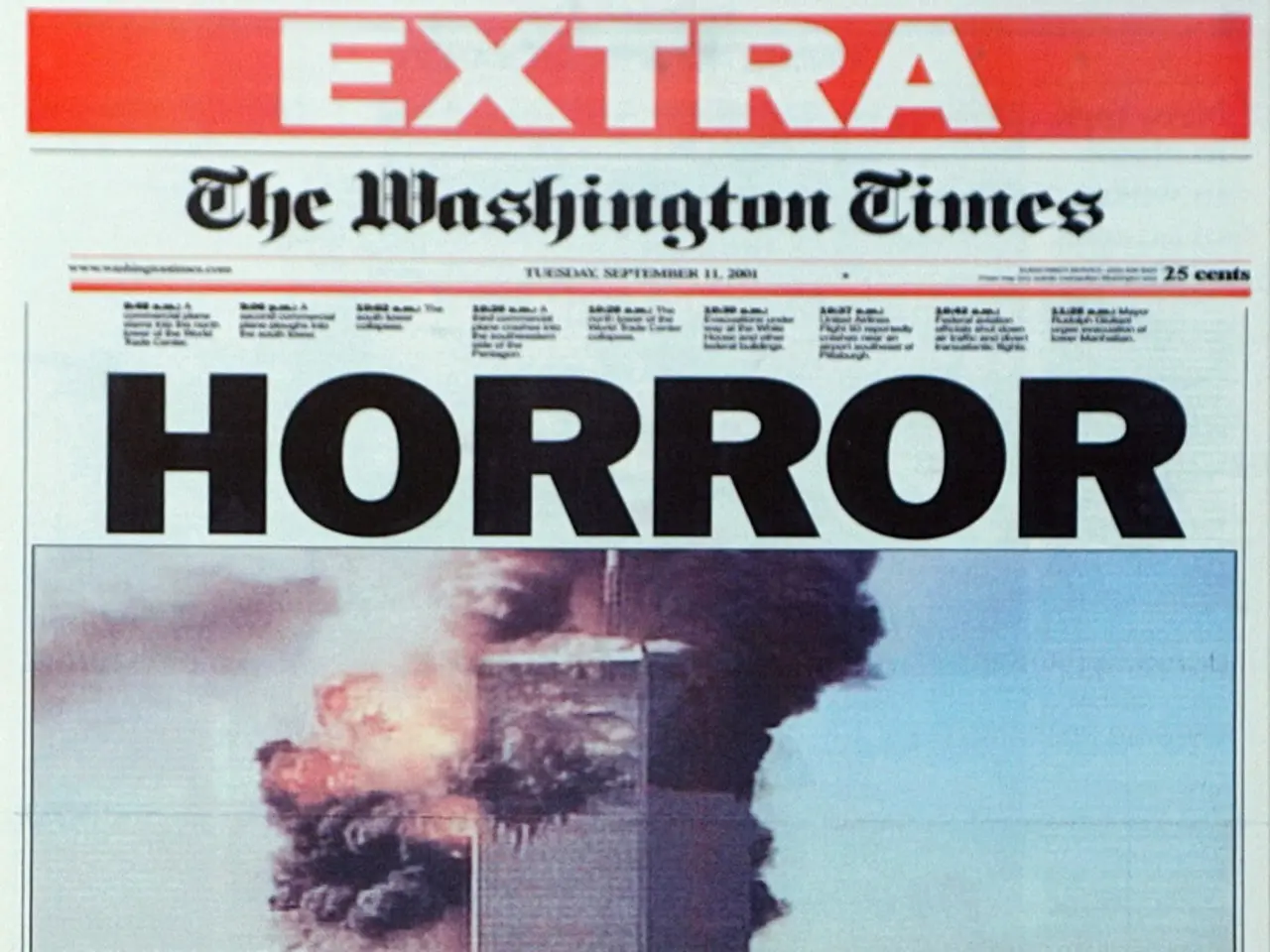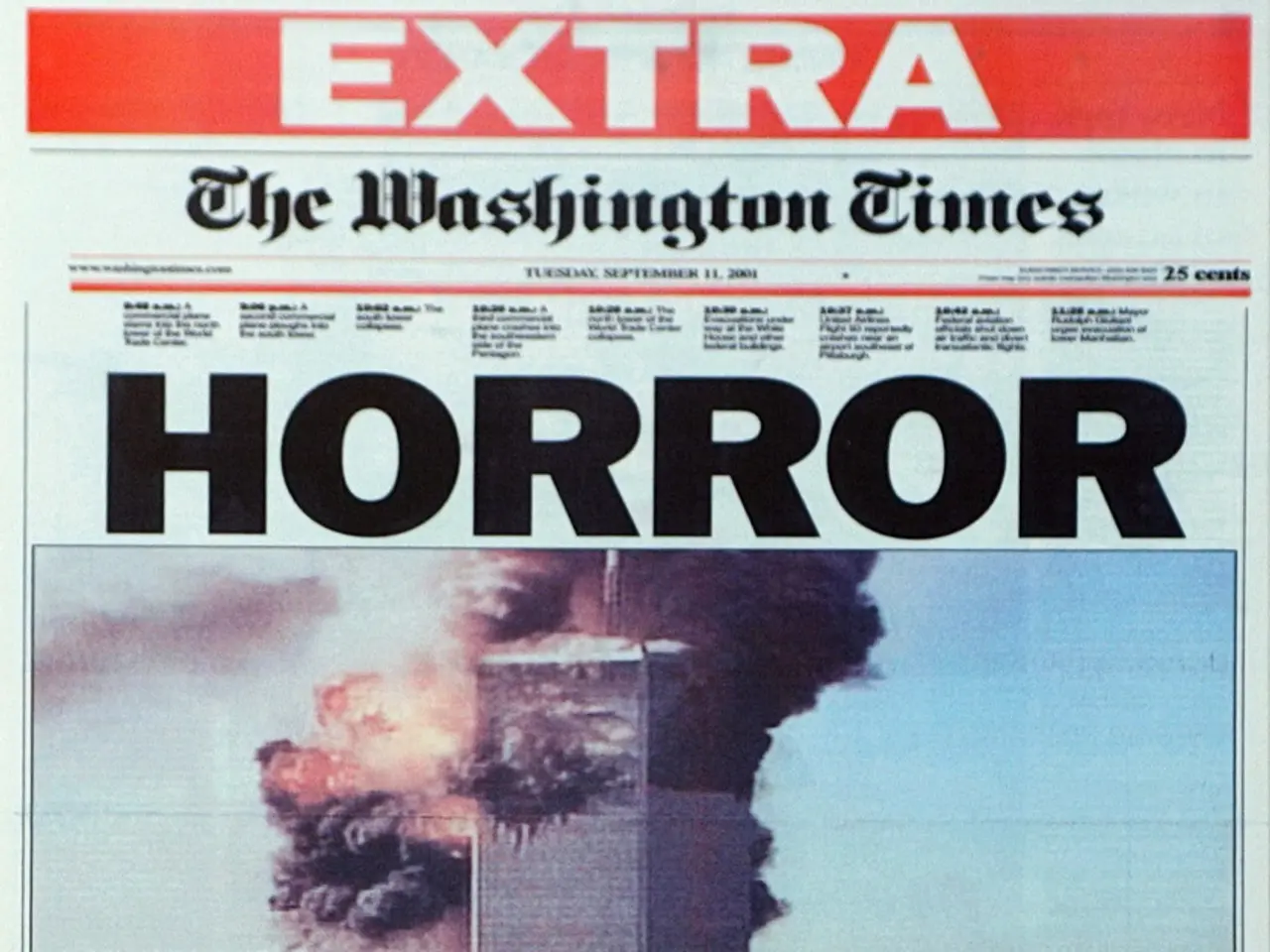Taking the Power of Football to a New Level: Infantino's Excitement Over FIFA's Clear Stance on Hate Speech
FIFA Provides Unambiguous Signal, Leaving Infantino in High Spirits
Share on Facebook 📲 Tweet this 🐦 Forward on WhatsApp 💬 Email this ✉️ Print this 🖨️ Copy Link 🔗
In a surprising turn of events, FIFA has appeared in the spotlight once more, causing quite the stir. This time, it's due to the reappearance (albeit momentarily) of the "No Racism" slogan during a turbulent club tournament. Gianni Infantino, the powerhouse President of FIFA, has expressed his delight.
Taking to Instagram, Infantino proclaimed, "I was utterly thrilled to witness FIFA standing steadfast against racism at the ongoing Club World Cup matches. We're determined to leverage football's power to bring about positive transformation in our beloved sport and the world at large."
Recently, FIFA left fans and advocates puzzled with the disappearance of "No Racism" and "No Discrimination" messages in stadiums, quite unlike previous tournaments. In its place, the "Football Unites the World" campaign was introduced during the tournament. Some interpreted this shift as a move to appease the political landscape of the U.S., with President Donald Trump already having issued an order to dissolve diversity, equity, and inclusion (DEI) programs in federal agencies shortly after taking office. US-based institutions and companies, including the NFL, have also followed suit, omitting anti-racism slogans from their shows of support.
Piara Powar, executive director of FARE (Football Against Racism in Europe), shared his dismay with the BBC about the missing messages. "It's disheartening to observe that anti-discrimination messages aren't present at the Club World Cup. The messages have historically been well-received by the public, players, and the community. It's disappointing that this message of unity can't be spread worldwide."
Nonetheless, the slogans resurfaced on the "International Day for the Elimination of Hate Speech."
At the 74th FIFA Congress held in Bangkok, Infantino introduced five focus areas to combat racism through which all 211 member associations can participate actively. One noteworthy measure: the implementation of a global gesture to combat racial slurs, with arms crossed at the wrists. As Infantino explained, "This gesture symbolizes unity against racial discrimination and offers players, team officials, and referees a tangible way to express their objection to racism." By crossing their arms at the wrists, players can concretely signal to the referee about any racial abuse, setting off a three-step procedure. If persistent offenses persist, this procedure can lead to the match's abandonment.
Off the pitch, FIFA is laying the groundwork for protection against online abuse through its service for protection against online abuse (SMPS). This assistance covers all 32 participating teams and cares for a grand total of 2019 accounts of players, coaches, and officials. FIFA introduced this service at the 2022 World Cup in Qatar and has deployed it at 23 tournaments, qualifying, and friendly matches since. To date, over 33 million posts and comments on 15,302 accounts have been evaluated, with approximately 10 million offensive comments automatically purged to safeguard the affected individuals, their loved ones, friends, and followers from online harassment and potential mental duress.
In essence:- The "No Racism" slogan reemerged, briefly, at the Club World Cup on the "International Day for the Elimination of Hate Speech."- FIFA's commitment to combating racism extends beyond the pitch, as illustrated by its online abuse protection service.- The decision to remove anti-discrimination messages from the 2025 Club World Cup was met with resistance, but a response to the backlash is yet to be seen. [1][2][3][4]
Community policy, employment policy, and this initiative to combat racism demonstrate FIFA's resolve to utilize football as a powerful tool for positive transformation and unity against hate speech, reflected in their employment policies and community engagement strategies. Amidst the excitement surrounding the revival of the "Football Unites the World" campaign and the implementation of a global gesture to combat racial slurs, discussions revolve around the benefits of reintegrating sports, such as football, into various employment policies and social communities.







